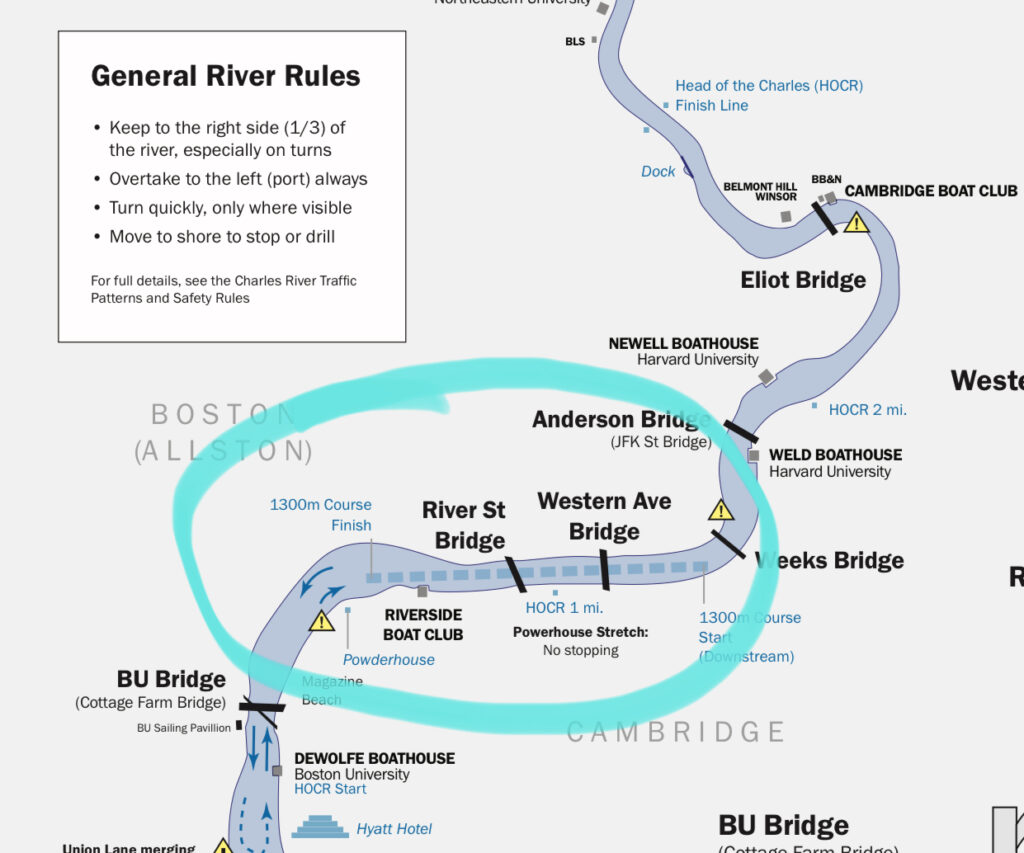Welcome To Power House Physio
About: Power House Physio

Power House Physio is a rowing blog focused on diving deep into the why behind various aspects that contribute to keeping yourself healthy and rowing. I want this to be a resource for any who stumble upon it to help grow their love or understanding of rowing. The information you’ll find here speaks to rowers, coaches and professionals supporting rowers. The more you understand happens during the rowing stroke, with strength training, fueling, equipment set ups, etc. the healthier you might remain and the more you get to enjoy rowing.
The knowledge of why is powerful. It helps you build your foundation for yourself, your team or your clients in and around the world of rowing. I started this blog as resource to provide rowers of all ages, classifications and experience levels with some simple ways to increase their knowledge of how rowing interacts with their anatomy and physiology as a whole to build a stronger foundation for performance or just to keep showing up to enjoy a row.
The goal is to empower you to understand more of aspects that affect what you’re trying to accomplish. That might be getting your teenager to stay healthy when they’re new to the sport, or to understand why they might be coming home telling you their back, hip, knee etc hurt. It might be as a coach you desire to have fewer injuries on the team this season or as an athletic trainer or strength and conditioning coach, you just want to learn more about rowing. It might be you are wanting to push your body past it’s limits to achieve the highest level of rowing you’re able to. It might be that you want to compete in your first race as a masters rower and you want to figure out how to stay strong and healthy to show up for the next row. Or you might just love being out on the water and want it to always be somewhere you can go for yourself or with your friends. It doesn’t really matter, no matter the age, experience level, or level of competitiveness you enjoy, or relationship with rowing, the blog posts and other bonus podcasts etc on this site are made for you. I use this site to do the same for myself. The more I can understand the anatomy and physiology behind rowing, the better physio/physical therapist I can be for those I have the opportunity to work with AND the better rower I become on the water.
PowerHouse Physio is inspired by the many power houses of rowing to help you be the “Power House” rower you aim to be!
Behind the Name: "Power House Physio"
1. The Powerhouse Stretch
The biggest inspiration behind “Power House Physio” is the Powerhouse stretch along the Head of the Charles course right here in Boston. The Powerhouse stretch is home to Riverside Boat Club (@riversideboatclub) where I feel most at home along the river. There is just something about wearing those blue and white stripes that makes me a proud member and inspires me. The Powerhouse stretch is the only straight half mile of the HOCR course where you get to use your power and speed to pass and gain water without worrying about steering the curves, but watch out for the bridges!

2. The Power House of a boat



That 3-6 seat in an 8+ as the traditional “Power House” or engine room of a boat. Where you just get to focus on putting power behind the oar and helping your boat move fast. I love to find that feeling of contributing to max speed in a 2x or 1x with the fitness and power of sculling. Or in a four or quad to sit in the middle pair and contribute to speed while the stroke guides and the bow steers. The power you find while working with others and with the water is one of the most special parts of rowing.
3. Be A Power House!
As an athlete and general human, who doesn’t want to feel like a Powerhouse?! The confidence that comes from feeling your strongest, moving your best and finding top speed, is one of the best feelings to find! From racing your best race, being confident in that 3rd 500 that you’re not tired and they are, to being able to get on and off the dock without worrying about slipping or dropping things. There’s a lot of aspects of how we feel when we go for a row that make life better. There’s a lot of aspects of life that get better when we make ourselves stronger, take care of ourselves and learn more about ourselves that make you feel powerful and confident in ways you didn’t realize rowing could bring you. These are my favorite moments, when rowing make life better. Hopefully something within this website does that for you or shows you how to build a stronger version of yourself.
I am here as Power House Physio to help you build your personal knowledge of building a rowing body to make you more successful at making those technique changes, at being able to lift heavier, at being able to tolerate higher volumes without struggling with injury. I am here to give you the tools to help yourself build up your threshold for work and in turn lower your risk for injury. Power House Physio is here to help you be the Powerhouse you desire to be!

The Current Goal: To Play a Role in Shifting Rowing Culture
The more I learn about rowing beyond my personal experiences, the more I want to know and the more I love this sport. There are a few things about rowing that we can all do better. A few old habits we need to work together to re-mold. The main goal I always have with anyone I work with is to foster a life long love of rowing! This doesn’t always come from completing the expected training minutes or being able to speak about the various medals you have won. All those things are amazing, as long as the majority of the time getting there is still fun. Rowing is a sport that requires a lot of hard work, that teaches us a lot about how to approach difficult moments in life. But just life life, sometimes just doing more or working harder isn’t the answer. We have to learn to be smart in our approach so the long term outcome is what we are looking for.
Rowing culture creates some amazing personal habits, a phenomenal work ethic, amazing friendships and connections even on a global scale. You go somewhere and find another rower and you immediately have a lot to talk about and you generally understand them as a person who works hard, works together and looks to find their best self, it’s amazing! What I have always struggled with as a rower and as a physio/physical therapist is the ruthlessness and poor communication of athlete health that is embedded in rowing culture in a counterproductive way. I personally have played this game poorly in the past. I have rowed until things hurt too much to continue, broken ribs, had shoulder, knee, or hip pain and not said anything until it was in need of some serious time out of the boat. In hind-sight and when I work with rowers now, the better strategy is to act early and quickly when something isn’t right. The faster you act, generally the less time missed form training. It gives you time to find the root of the cause before you’re so deep in the hole that it takes weeks or months to get back out. It takes trial and error for sure, I am still doing that myself. But I have experienced a huge shift in understanding how to train and row smarter and the result has been that I keep getting faster. It’s hard to bring things up to teammates or coaches or trainers when they don’t feel right, but this is a part of the change.
Part of this change with just a shift in conversation at the boat house, is make it part of the routine to check in with each other, with your rowers as a coach, with your teammates to encourage everyone to listen and take care of their bodies so you all can “just keep rowing” in the long run. To be honest with yourself when something starts to get tweaky and find some help or guidance. This is hard to do. It’s embedded in our culture for a very long time that more is better or faster. What can keep you doing more to be fast or just keep you happily rowing is understanding the various aspects that go into keeping a healthy rowing body. Knowing the signs of overtraining, of underfunding, or knowing the signs of a bad/injury based pain.
So what do you do when things start to feel off or just not right? Does it mean you miss one practice to save yourself from missing three weeks or more down the line? Does it mean you modify your rigging or position in the boat? The challenge that rowing has that most sports do not is the shear numbers of athletes on a sweeps team, or the variety of ages and experience levels amount juniors or masters rowers. Building a training for athletes in so many different stages of learning to row means it’s not perfect for everyone. So knowing that you might just need to make small tweaks to keep yourself healthy and that a coach or trainer should help you find a balance if needed. It’s not always a matter of strength or who has the best splits, sometimes it’s that a rower has a huge pile of classwork stresses, family stresses, financial stress or can’t sleep enough or eat enough or just cannot spend the time they need to recover between workouts to avoid going down the spiral of over drawing energy reserves and making yourself susceptible to injury. It’s not easy to account for everything, but we can start with talking about it all more and learning more to know how to manage the many many aspects of training and gaining speed that go way beyond how far you rowed today.
With Power House Physio my goal is to provide you knowledge to empower you to listen to your body, to read your athletes/rowers tolerance of a training plan, to know what questions to ask and when to seek help AND to help rowers understand that training into a hole, rowing in pain and opening the door to frequent overuse injury no longer needs to be a part of our sport. You will be a faster rower if you remain healthy. Progress comes from consistency of training and taking care of yourself as a whole and not just checking off boxes practice to practice.
I hope you enjoy what you find at powerhousephysio.com. I love learning more and am always interested in what you want to know. I share my current themes or happenings in clinic through my email list to try and keep the conversation going. Subscribe to my emails or send me an email and tell me what you’re thinking!
